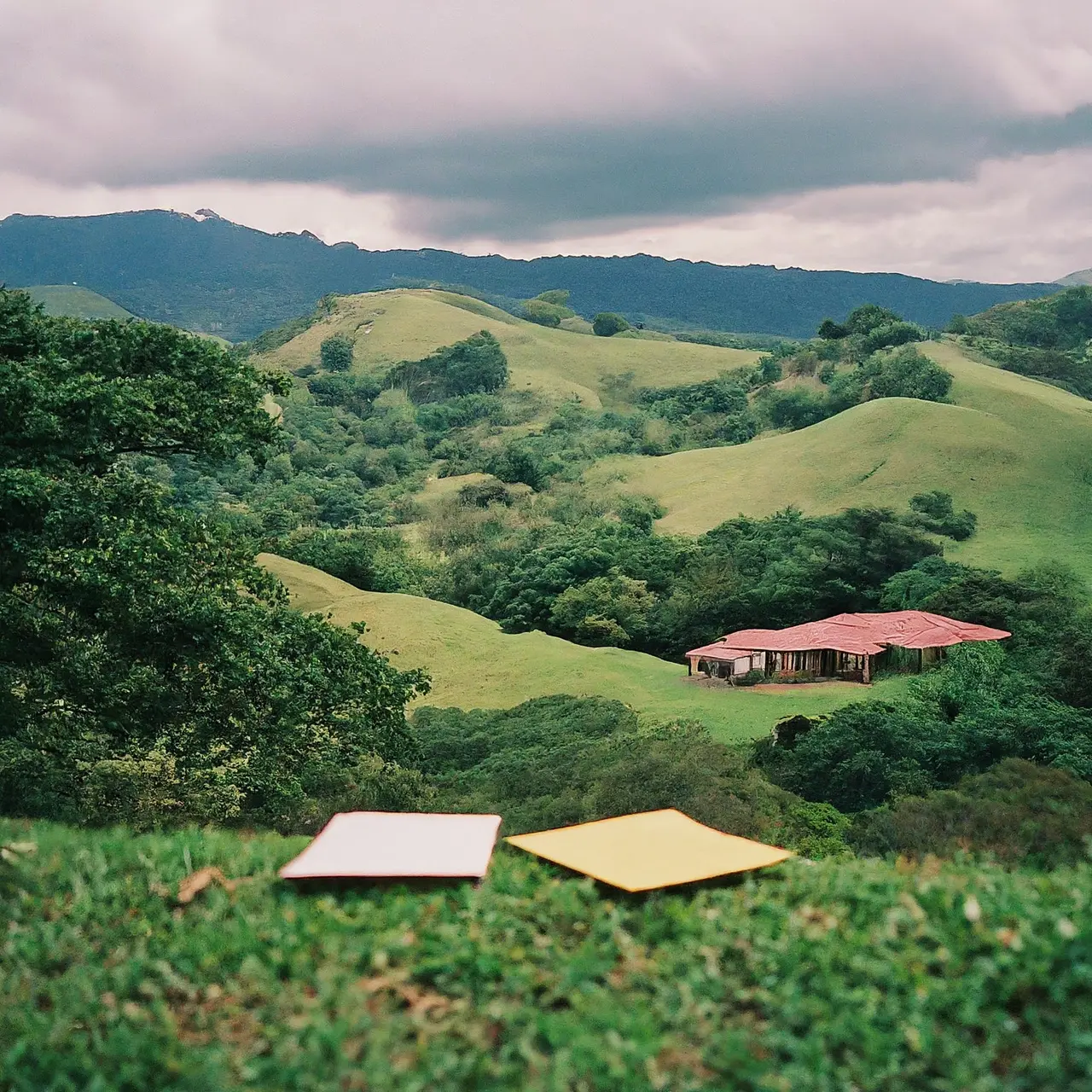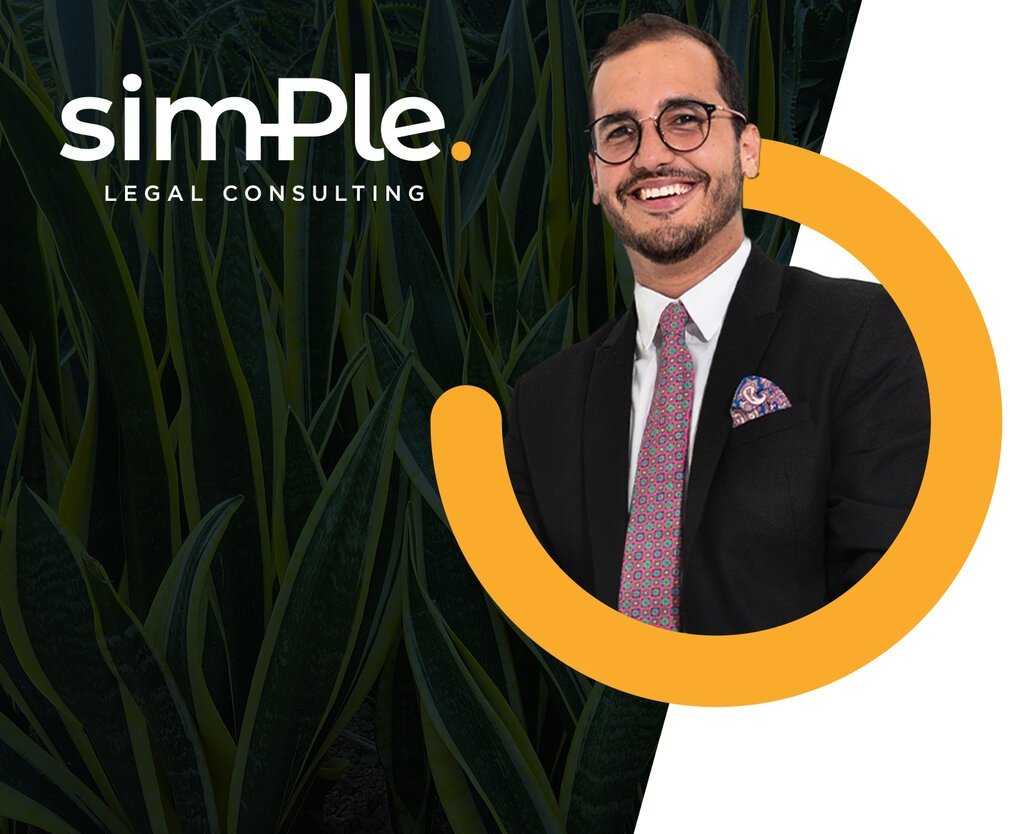Move to Costa Rica with Ease – Investment & Immigration Experts
🌍 Thinking about relocating to Costa Rica? Whether you want to purchase property, start a business, or secure residency, we make the process simple, efficient, and stress-free.
What We Do:
Residency & Immigration Services → Visas for digital nomads and students, temporal residencies (rentista, investor, pensioner, manager) permanent residency, naturalization.
Investment & Property Services → Buy real estate (read our guide, don´t get scammed), create corporations, as fast as in 3 days, open bank accounts, draft & review contracts, and secure your legal status.
Full Legal Support → We handle everything from documentation to approvals.
Why Choose Us as your lawyer in Costa Rica?
📌 Client-First Approach – We respond quickly, directly, and effectively with a fixed fee and a problem-solving mindset, that is why families, Top C Executives, Business owners prefer us over big slow firms.
📌 Proven Track Record – Trusted by hundreds of clients worldwide across Costa Rica’s major cities.
📌 Seamless Process – We guide you step by step, so you don’t have to worry about bureaucracy.
Serving Clients Worldwide and in all the regions of Costa Rica
We work with individuals and families from North America, South America, Europe, Asia, Africa, and Oceania. Whether you're looking to live, invest, or retire in Costa Rica, we are your trusted partner for a smooth and successful transition.
📌 Explore Our Resources
Learn about your residency options, investment opportunities, and the application process in our FAQs & Guides.
🚀 Let’s Get Started! Contact us today for a personalized consultation.
Migratory Categories that we serve
-
Investor Residences
Any person who invests USD$150,000 in real estate, shares of a company, vehicles, boats, planes, securities with a stock exchange company, venture capital funds, projects of national interest or sustainable tourism, may apply for residence. Learn the benefits using this link and make sure to conduct a due diligence (DD) before investing, we can help on that too.

-
Digital Nomad Visa
If during the last 12 months you have received deposits of at least USD$3,000 per month (or USD$4,000 if you are a couple), you can apply for a Digital Nomad VISA for up to 24 months. Digital Nomads are exempt from paying income tax and social security. Learn about the benefits in this link.

-
Rentista Residence
If you receive a fixed income of at least USD $2,500 per month for a period of 2 years, totaling USD $60,000, from sources abroad or within Costa Rica, you can qualify for this category of residency. It is expected that you have a certified deposit or similar financial instrument that generates this amount in interest or a similar income source.

-
Retirement residence
For anyone who dreams of retiring in Costa Rica, you can do so if you prove that you have a pension of at least USD$1,000 per month. With that pension you can include your spouse and you can apply for social security.

-
Student Visa
If you will study at an institution recognized by the Costa Rican government authorities and it is for more than three months in Costa Rica, you must apply for a visa and proof the enrolment in a course from an accredited institution.

-
Residence for Managers and independent professionals
We can help you set up a corporation to apply as a manager and structure a clean application. In this category, the Minister of Labor plays a role. We also help companies register the DGME to get fast track applications.

-
Residence by family relationship
This type of residency applies to different if you are married to a Costa Rican, are married to foreigner with legal residency, if you have kids within the Costarican territory, it also covers your parents.
Keep in mind that in Costa Rica, same sex marriage is legal, therefore same sex couples can also benefit from this category.

-
Nationalization
We help residents become naturalized after meeting the requirements established by the Law of Options and Naturalizations, you can become a national by either being married with a costarican for 2 years, living in the country for a certain amount of years, among other reasons

Herman Duarte, founder, Simple Legal Consulting (SLC)
“When I moved to Costa Rica in 2012, the big immigration law firms told me I wouldn’t qualify for residency. I proved them wrong. Now, I use that first-hand experience and legal expertise to make your immigration journey smooth, stress-free, and successful.
Let’s be real—no one plans to spend money on a lawyer. But when you need one, you should invest wisely and hire the best. At Simple Legal Consulting (SLC), our name says it all—we make the legal process clear, efficient, and hassle-free, so you can move forward with confidence.
No more endless Googling. No more uncertainty. Just expert guidance from honest professionals who care about your success.”
Herman Duarte, a recognized authority in investment and immigration law, has been invited to appear on Costa Rica's leading podcast for investment insights. Known for his unparalleled expertise and groundbreaking contributions in the field, Herman has built a reputation as the go-to advisor for individuals and businesses navigating the complexities of Costa Rica’s investment landscape.
With over 13 years of experience as a licensed attorney in Costa Rica, Herman's unique perspective stems from his deep understanding of local regulations, his work in advancing innovative solutions, and his dedication to helping clients achieve their goals seamlessly. His invitation to the podcast underscores his status as a thought leader and a trusted expert in the region.
During the podcast, Herman will share invaluable insights on investment opportunities, residency pathways, and strategic planning for success in Costa Rica, making this a must-listen episode for investors looking to maximize their potential in this thriving market.

Looking for a Plan B? Why Costa Rica Is an Ideal Place to Relocate
In times of uncertainty, having a Plan B is essential. Whether for security, lifestyle, or financial freedom, finding a stable, welcoming country is a challenge. Costa Rica stands out as one of the best relocation options in the world, offering stunning natural beauty, a high quality of life, and solid legal pathways for those looking to start fresh.
As the founder of Simple Legal Consulting (SLC)—a firm specializing in Immigration, Investment, and Corporate Law—I have helped countless people move to Costa Rica successfully. If you're considering relocation, here’s what you need to know.
Options for Legally Moving to Costa Rica
Costa Rica offers several pathways to residency and long-term stays, whether you’re an investor, entrepreneur, retiree, or digital nomad. Depending on your situation, you can either obtain a special visa for up to 12 months (like the Digital Nomad Visa) or apply for full residency, which leads to permanent status and even citizenship.
💼 Immigration Categories & Requirements
Investor Residency – Requires a $150,000 investment in real estate, company shares, boats, cars, planes, or securities.
Rentista Residency – Requires $2,500 fixed income per month OR a $60,000 deposit in a Costa Rican bank.
Pensionado Residency – Requires a pension of $1,000+ per month (military, retirement, or disability pension).
Company Manager Residency – Ideal for entrepreneurs who set up a business and manage it locally.
Specialized Knowledge Worker – Requires approval from the Ministry of Labor to ensure the job does not impact local employment.
Marriage Residency – Available to those married to a Costa Rican citizen or legal resident (immigration will verify the authenticity of the marriage).
Digital Nomad Visa – For those earning $3,000+ per month ($36,000 per year) in remote work.
💡 Family Inclusion: In all these categories, residency can cover your spouse, children under 25, and dependent parents.
🔹 Residency Benefits & Tax Advantages for Temporal Residents in Costa Rica
🛂 Digital Nomads
Exempt from income tax & social security fees in Costa Rica.
Can open a local bank account and use their foreign driver’s license.
🏡 Investors, Rentistas & Pensioners
Once residency is approved, you can import two vehicles and household goods tax-free.
Access to banking services, legal protections, and discounts on property transfer taxes.
⏳ Processing Time
Digital Nomad Visa: ~3 months from hiring a lawyer to approval.
Residency: Anywhere from 3 to 15 months, depending on the method used (traditional vs. online).
Why I Moved to Costa Rica & Why You Should Consider It Too
I moved to Costa Rica 12 years ago because my home country, El Salvador, no longer aligned with my future. Despite the challenges, relocating here was one of the best decisions of my life. Today, I dedicate my work to helping others successfully make Costa Rica their home.
At Simple Legal Consulting (SLC), we simplify the immigration process, ensuring you receive clear, honest, and efficient legal support.
About the Author
👨⚖️ Herman Duarte is the founder of Simple Legal Consulting, with over 14 years of legal experience as a licensed attorney in Costa Rica He holds master’s degrees from Stockholm University and the London School of Economics. Passionate about writing and research, he has authored two books and 200+ publications and has been recognized as one of the top attorneys in the region. He is also recommended as an English-speaking attorney by the United Kingdom Embassy in Costa Rica.
Thinking about your Plan B? Costa Rica could be the ideal place for you. Let’s make your move simple.
Our partner, Herman Duarte was invited to the global podcast investment Immigration Podcast by Uglobal.com, hosted by Salman Siddiqui
FAQ
-
Each case is unique and will vary depending the category, but it is usually requested the following:
Birth certificate
Criminal Records of the country of nationality and from the place of residency of the past three years. If the country is a FEDERAL nation, then only FEDERAL criminal records would work.
Marriage certificate, when applicable.
Academic degrees, when applicable that back-up the specialised knowledge.
All documents must be translated by an official translator and has to come with an apostille.
Keep in mind that this documents are not needed for a digital nomad visa.
-
in order for documents to become valid in Costa Rica, the documents have to be issued by a competent authority and must be legalised either with the apostille or through the chain of legalization methods.
If you need help in obtaining your documentation, please contact us, forget the stress of googling for answers and not knowing what to do. Let us help.
-
Another aspect to take into account is that all documents must be in Spanish or translated by an official translator authorized by the Ministry of Foreign Affairs of Costa Rica.
Don't worry, our job is to make your life easier, so we'll coordinate this process. You just have to pay for it.
-
The first thing you should do is contact us to review your case, explain the different possible scenarios, and then decide which way to go.
There are two ways to apply for residency:
ONLINE, using the Tramiteya.go.cr website, but it is limited to only certain migration categories. This comes with an additional cost of $10 per request, but with the promise of a response in just 90 days.
IN PERSON, using the appointment system available on the Immigration Department website.
-
It really depends on each case and the circumstances of each person, sometimes it can take up to 3 months, as it happens with managers of companies registered with the General Directorate of Migration and Aliens. While in other circumstances it can take between 1 or 2 years.
It depends on each case, really, if you have any questions, just contact us and we'll clarify it for you.
Keep in mind that once you apply for residency, you will receive a paper that proves your application and that paper allows you to stay legally in the country until you get a resolution from the migration agency.
-
The process involves at least the following institutions:
General Directorate of Migration and Immigration (Migration Authority)
Police Department: for registration purposes. It can be done before or after the presentation is made.
Minister of Labor: only in the cases of knowledge migrants, to ensure that there are no local displaced persons.
Costa Rican Social Security Fund: it is mandatory to be affiliated with Social Security.
Ministry of Finance / Tax Authority: In certain categories, it will be necessary to register with the Tax Authority
-
The application fees.and taxes that are paid directly to the government to apply for residence varies between USD$50-$250 dollars, depending if the application is done within the country or abroad.
The security deposit, which is refundable, is determined by the price of a return ticket the applicants homecountry. For digital nomads, this requirement has been simplified to paying USD$100.
-
Yes, but it depends on each case. The best thing you can do is talk to us directly to get all your answers.
-
For purposes of interpreting the concept of dependent, it includes:
Spouse/husband (heterosexual or homosexual, it does not matter, since in Costa Rica we have same-sex civil marriage)
The sons and daughters of one or the other, under twenty-five years of age or older with a disability;
Their parents, provided there is a dependency relationship.
-
In accordance with Law 9966, those who apply for residence, either as a renter or investor, within a period of 5 years from the enactment of the law (July 21, 2021) will have the following benefits:
1. Tariff exemption and all import taxes present for a single time, for the importation of household items. In the applications you can protect your dependents, for immigration purposes. Household items shall be understood as any new or used article, of a reasonable nature and proportionally sufficient for the needs of the beneficiary of this law and the members of his immediate family, including, among others, furniture for domestic use, electrical appliances, decorative items of home. , kitchen and bathroom utensils, bedding. If the beneficiary alienates these assets within the validity period of the benefits granted in accordance with the provisions of the second paragraph of article 12 of this law, he must pay the taxes from which he was exempt. In very qualified situations, in which the household goods are destroyed or lost due to theft, the beneficiary may acquire other goods in substitution for them, equally exempt from taxes. The regulation will develop the accreditation mechanisms of the circumstances in which these qualified exceptions apply.
2. Beneficiaries may import up to two land, air, and/or sea transportation vehicles, for personal or family use, free of all import, duty, and value-added taxes. In the event of loss of the vehicle due to theft, total destruction by fire, flood, collision or accident, occurring during the period of validity of the benefits granted in accordance with the provisions of the second paragraph of article 12 of this law, the owner may import another vehicle free of the indicated taxes. The beneficiary of this law, who has imported a vehicle under the conditions indicated in the previous paragraph, may sell or dispose of it to third parties, in which case the provisions of article 10 of Law 7088, Tax Readjustment and Tariff Resolution 18 will apply. and Customs. Council CA, November 30, 1987.
3. The sums declared as income to qualify for the benefits of this law will be exempt from income tax. However, the income obtained in the national territory, the results of the investments made in the country, will be taxed by the income tax. , in accordance with the provisions of Law 7092, Income Tax Law, of December 21, April 1988.
4. Exemption of twenty percent (20%) of the total transfer tax, in real estate acquired within the validity of this law, provided that the beneficiary is the registered owner of the property. If the beneficiary alienates these assets within the validity of this law, he must pay the taxes from which he was exonerated.
5. Exemption from taxes on the import of instruments or materials for professional or scientific practice, carried out by the person with the migratory category of investor, pensioner resident or rentier resident. The person must demonstrate, before the Ministry of Finance, that what is imported corresponds to his economic activity and meets criteria of proportionality and reasonableness.
-
Yes. You are entitled to leave the country, anytime you return you will be required to show the proof of application and an exit ticket
-
Yes, not a problem. We can coordinate everything so you have to move only if its absolutely necessary.
It will be ony necesary on the following aspects:
1. Police registration: this is mandatory for any residency (not for visas).
2. Consular registration: most Consulates have the possibility to do it online, but there area few exceptions that require to do it n person.
3. Marriage interview: in the case of residency through marriage, it is mandatory to have an interview before the immigration authority.
Migration Categories
If you don't want to read, simply ask for a free meeting to explore your situation and guide you to apply in the category that best fits your profile. But if your thing is to understand, then the first thing is to understand the different categories that a foreigner who enters Costa Rica can opt for. According to the General Migration Law (Law 8764), they are the following:
TOURISTS
For those who remain in Costa Rica for a time between one (1) and ninety (90) days. The only obligation that a tourist has during the immigration process at the border (land or airport) is to show the immigration officer that they have a return ticket and valid medical insurance that would cover any incident during their stay.
Under certain conditions, a tourist may request an extension of their tourist entry into the country, this is possible under certain specific circumstances.
However, not all tourists take the time to apply for an extension, and as a result expose themselves to legal consequences ranging from pecuniary penalties ($100 per month) to being forcibly removed from the country.
Some will be barred from re-entering the country. That is why it is recommended to opt for a residence or a special VISA (like the digital nomad, it is totally worth it as you get an tax free stay in Costa Rica).
For those who intend to stay for a period greater than 90 days and intend to settle in Costa Rica. There are two types of residences: temporary and permanent. The permanent category is acquired after 3 years of being a temporary resident. Residents have the same rights as nationals, except for political rights, since foreigners cannot participate in politics.
Another aspect to highlight is that temporary (non-permanent) residents run the risk of losing their immigration status if they change jobs. The advantage of applying for a residency is that the possibility of opting for Costa Rican nationality (naturalization process) arises after obtain permanent residence for an uninterrupted period of between 5 to 7 years (depends on the country of origin).
From the moment you apply for a residence, you get the right to stay in the country. The process usually takes between 3 and 18 months, which depends on different factors. The important thing is that from the moment you apply, you can stay in the country.
So how do you get temporary resident status? SIMPLE, through one of the following categories: 2.1 Residences by Capital; 2.2 Residences by Knowledge; 2.3 Residences by family relationship. We explain these later (read on).
3. SPECIAL CATEGORIES
There are a large number of factual scenarios for the application of special categories, which do not enter into a residence application. It refers to those foreigners who intend to migrate to Costa Rica for humanitarian reasons, due to their particular conditions. It supposes a special situation of vulnerability of the foreign person. Some of these categories include: Stateless Person, Person in Asylum, Special Category for Humanity Reasons, and Refugees.
Special visas also fall into this category, such as student visas and remote worker visas (digital nomads).
2. RESIDENTS
2. TYPES OF RESIDENCES
2.1 CAPITAL RESIDENCIES.
Migrant Capital refers to the group of foreigners who either have an accumulated amount of capital at present, or who have reliable proof that they will obtain a significant amount of cash flow to cover their expenses in Costa Rica.
In this category we can include rentiers (rentier), pensioners or retired population (pensioner) and investors (investor), the requirements for each one are:
For pensioners and their dependents, an income of USD$1,000 is required;
For renters and their dependents, a minimum income of USD$2,500 is required. This income must be demonstrated within a bank account of a Costa Rican bank or through bank statements duly apostilled.
For investors and dependents (partner, children, dependent parents), an investment of at least USD$150,000 in real estate, personal property, and other types of businesses. Learn more on this link.
In Costa Rica, foreigners can buy real estate without any limitation, but it is important that before buying a property, especially when it comes to land, that they carry out a due diligence process hand in hand with competent legal representation. We can help you with that.
Some of the tax incentives are:
Exception from PAYING any INCOME TAX on capital brought into Costa Rica, for a 5-year window period, beginning in July 2021.
Exception from PAYMENT of the payment of import duties of "household items", two vehicles (car, boat, plane), work tools.
2.3 RESIDENCE BY FAMILY LINK.
Migrant due to family ties refers to the category of foreigners who migrate to Costa Rica due to their family ties with a Costa Rican, either by marriage or filiation, or with a permanent or temporary resident.
It is important to note that in Costa Rica, same-sex marriage is recognized in the same way.
2.2 KNOWLEDGE RESIDENCY
Knowledge migrant refers to the category of foreigners who migrate to Costa Rica because of their specialized knowledge, and who come to perform a job that local workers cannot perform or create new ones. Proof of knowledge, such as academic degrees, will be required.
In this last category, what matters is that knowledge migrants do not displace Costa Rican workers, so the criteria of the Ministry of Labor is vital to review the feasibility of the request.
There are different subcategories including:
Scientists, Professionals and Interns
News agency staff and their dependents
Athletes and their dependents
Managers and Senior Executives and their Dependents
Specialized Self-Employed Workers and their Dependencies
Specialized Employees in relation to the Unit and its Dependents
Specialized Technician and his Dependents
In all cases where there is a dependency relationship, it will be necessary to have the support of the employer in different aspects, so in practice the person who is going to migrate is required to be productive in finding employment. I recommend sites like Linkedin that publishes offers on a daily basis.
In any case, it is vital to remember that the migrant must be aware that there is not an excessive offer in Costa Rica, this can be verified in the list of professions NOT recommended by the Ministry of Labor. In case of having a profession that is not recommended, your possibility of obtaining residency drops substantially.
DIGITAL NOMAD VISA
On August 11, 2021, the “ACT TO ATTRACT INTERNATIONAL REMOTE WORKERS AND SERVICE PROVIDERS” also known as the “DIGITAL NOMAD Law*” was signed into law by the executive branch.
This law aims to facilitate the process for digital nomads to move to Costa Rica for a shorter stay than residences, eliminating the participation of various public entities and obtaining a response in approximately 3 months from when we hire. Its regulation was signed on July 4, so it is already possible to apply to this process.
The extremely agile process that according to our times takes only three months from the time we are hired until we obtain the approval of the immigration authority. This VISA in Costa Rica - aimed at talented digital nomads - grants the following rights:
Valid and legal permit to stay within the territory of Costa Rica for a period of 12 months, with the right to extend it up to 24 months
The right to open bank accounts.
Right to have the driver's license recognized as valid during the VISA period. D
Digital Nomads will also have special tax benefits such as:
NOT PAYING INCOME TAX during the time of their VISA
NOT PAYING social security fees.
To receive benefits, Digital Nomads must demonstrate a monthly income from abroad of at least $3,000 (or $4,000 for families) and health insurance with coverage of up to $50,000. It is important to highlight that part of the benefits include that they will not have TAX obligations with respect to that income, that is, they do not have to pay income tax.
Our partner, Herman Duarte, presented about the legal and sociological aspects of the Digital Nomad VISA in Costa Rica at a conference held at the Costa Rican Bar Association. Herman Duarte is highly recognized as an expert lawyer in different topics, including immigration and investment law in Costa Rica.








































